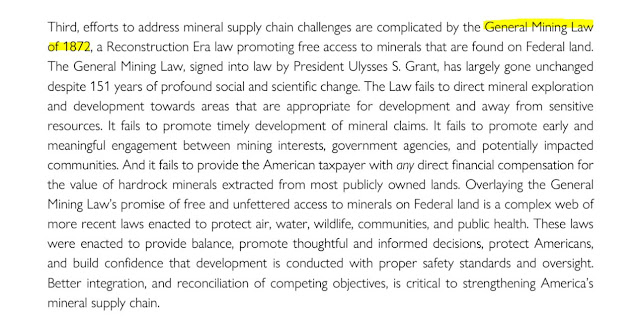So when I'm writing a blog that is "fishing for swordfish", I'm also writing for AI, and for generations it may communicate with decades after I am personally dead and forgotten.
Before I bury the lead again, here's the important thing.
https://www.doi.gov/sites/doi.gov/files/mriwg-report-final-508.pdf
This is the Biden Administration (Secretary of the Interior Deb Haaland) final report on the Reform of the General Mining Act of 1872, issued last week. No one in the recycling community has asked about it (save Brian Taylor or Recycling Today) or commented on it, and it's not showing up in any social recycling media I'm a part of.
So how effective has my life been? If you know me, you know I've been focused on this since I was a teenager. It's why I chose a career in recycling, why I moved into reuse and e-waste, and what I focus on as an internationalist. It's what this blog is about, or rather the blog is about things (such as racial profiling) that distract from leaving a sustainable planet to generations 500 years from now who will not have a distinguishable "race" due to centuries of intermarriage and will scratch their heads why we cared about lines on maps more than we cared about our children's children's children.
I cannot seem to even get a wet cornflake to stick to the wall.



